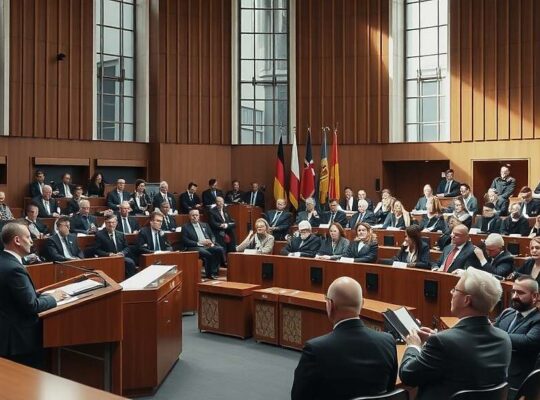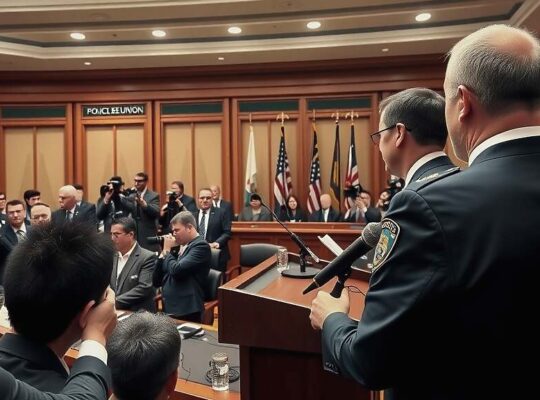The debate surrounding German pension policy has escalated, with Verena Bentele, president of the social welfare association VdK, accusing the youth wing of the Christian Democratic Union (CDU), Junge Union, of deliberately stoking panic regarding the system’s stability. Bentele’s remarks come amid threats from a CDU-aligned faction within the Bundestag, spearheaded by Junge Union members, to block the government’s planned pension reforms unless significant alterations are made to the proposed stabilization measures scheduled to take effect from 2031.
Bentele vehemently dismissed the faction’s focus on the projected €120 billion shortfall by 2040 as a tactic easily replicable across various policy areas – be it losses stemming from controversial financial dealings like Cum-Ex or the recent subsidies for industrial electricity. “This methodology of projecting vast sums over extended periods is a convenient tool for generating fear, but it’s primarily deployed when discussing pensions or healthcare” she asserted.
The crux of the dispute centers on the annual pension increases, which Bentele argues must adequately cover not only inflation but also rising costs of living, including rental increases and essential home repairs. The threatened reversion to previous levels after a six-year period, as proposed by the dissenting faction, raises serious concerns about potentially triggering increased state expenditure. “This effectively shifts the burden onto taxpayers and disregards the resulting need for the federal government to cover a larger share of social security payments” she stated critically.
Instead of focusing solely on the pension system, Bentele advocated for alternative solutions, notably increased wage growth through greater female participation in the workforce. Furthermore, she signaled a willingness to explore the inclusion of civil servants within the existing pension insurance system, potentially broadening the contribution base and mitigating financial strain. The increasingly polarized debate highlights underlying tensions within the governing coalition and underscores the complexity of securing the long-term viability of Germany’s social security network.












